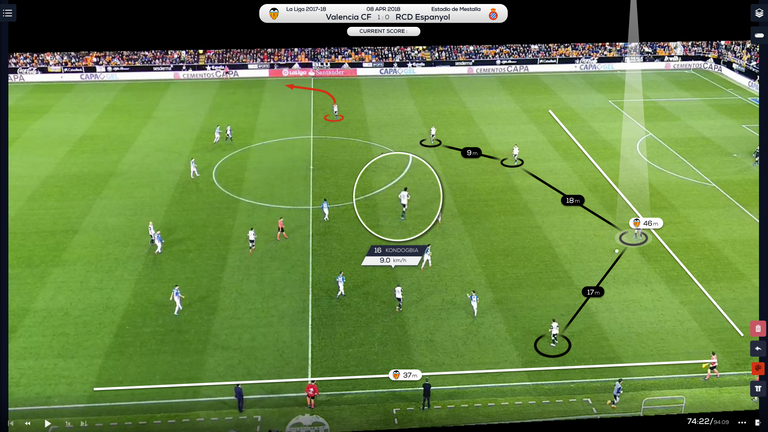
Sports Analytics 101 — Career
Last Updated on July 28, 2022 by Editorial Team
Author(s): Nitin Chauhan
Originally published on Towards AI the World’s Leading AI and Technology News and Media Company. If you are building an AI-related product or service, we invite you to consider becoming an AI sponsor. At Towards AI, we help scale AI and technology startups. Let us help you unleash your technology to the masses.
Sports Analytics 101 — Career
As part of my research on sports analytics, I am writing a series of articles examining the impact and benefits of machine learning and data analytics. Throughout my life as an aspiring data scientist, I have always sought out guides that would help me gain a deeper understanding of sports analytics. In the years that I have spent researching and attending courses, I have come up with the concept of a guide titled Sports Analytics 101. My hope is that this guide will assist people like myself in better understanding and appreciating data analytics.

Beginning — Kick Start your journey!!
For almost half a year, I have freelanced as a data analyst/scientist on several sports analytics projects, primarily concentrating on football analytics for both professional and media clients.
There is no denying it’s a pretty cool gig. This is why I guess it’s not surprising that the most frequent question is, “How do I get a job in football analytics?”
In the past, I asked similar questions to many “more established” analysts. The answers I received were generally things like work more publicly, demonstrate your ability to ask a good question, and approach the problem meaningfully. The responses I received were always a bit disappointing when I asked these questions and received answers. I understand that you have to work, but how else should I be contributing?
With time, I continued to write, received good feedback on my work from people within the analytics community, and eventually fell into freelance writing. If I am being honest, I believe this was a pretty lucky break, more so because I was in the right place at the right time than because I was lucky). As a result of this, I eventually began interacting with performance analysts at clubs and performed the occasional piece of work. Approximately two to three years after I first became involved in the football analytics community, I graduated from university.
As a result, when people ask me how they can get a job in sports analytics, I do not have a satisfactory answer beyond what I was told or an elaborate and overly specific life story.
I thought I would share a few tips I have picked up along the way that have helped me or individuals I know in the industry.
Build a portfolio of projects 📔
My recent experience includes Python, R, SQL, Apache Spark, Tableau, general linear models, supervised and unsupervised machine learning models, and Bayesian models.
When I began writing about football analytics, I would not have known what about 20% of the words in that sentence meant.
You will always compare yourself to those who are better than you in an industry like this. Initially, most of my work was in Excel, with data I copied and pasted. I wished I could be as good as those who knew how to code. When I began learning to code, I compared myself to people whose math ability enabled them to model better than me. I consider my coding and math backgrounds pretty good. I often compare myself to people who make fancier web applications than I can or academics who construct complex models based on tracking data.
As a result, you should not wait until you are the best before you begin writing. I hear from many people that they wish to learn how to do x before beginning writing. If you wait, you will be waiting forever. Start now. Even if your work appears simple or silly, it will still be found by others even if your methodology is suspect and if you demonstrate you know how to ask good questions.
Some great projects to start off with are:
- Fifa 20
- Fifa 22
- Statsbomb: Euro 2020
- Statsbomb: FA Women Super League 2020/21
Professional Qualification👩🏻🎓
Several degrees are available in sports analytics today, but that is beside the point. I think the statement “sports analytics isn’t a degree” may not be valid anymore. One follow-up question about how to get into sports analytics is, “what should I study to work in sports analytics?” I believe I have a better answer to this one: study something you are interested in.
The master’s degree I obtained in Data Science & Analytics was obtained after working as a software engineer. I know many people who have succeeded in sports analytics after practicing careers as engineers, historians, psychologists, performance coaches, and so on. Sports analytics involves thinking intelligently about a problem and communicating complex concepts in a way people can understand. These are skills you will be able to acquire across a wide range of academic disciplines. A potential employer in sports is not going to look at your degree first. Going into a degree with the expectation of finding a job in sports analysis is a) incredibly limiting and b) probably not true.
Keep abreast of domain developments ✏️
The fact that you should begin publishing work as soon as possible and study what you are interested in does not mean you should not learn skills specific to sports analytics. The learning part is often considered intimidating, but it shouldn’t be.
The first step is to familiarize yourself with your sport. Occasionally analysts fall into the trap of framing analytics as something at odds with the expertise of experts in the field in some parts of the media. Still, there is a lot that you can learn about the sport from people in it. To begin discussing these ideas, it is necessary to learn from sports experts since analytics provides a new method of approaching and sometimes challenging these ideas.
A second step is to learn how to code. Please choose a language (I recommend Python or R) and learn how to code in it. Despite your educational background, you can learn how to code.
It would help if you began by learning with a project you are passionate about, as it is essential to learn how to print “hello world,” but it can also be time-consuming. It can make learning a new language and eventually becoming frustrated with it a bit more palatable if you start with a project you want to work on, preferably a simple one. Don’t get frustrated if you aren’t an expert right away, as there will always be people better than you who you will learn from.
Last but not least, I believe it is crucial to gain a basic understanding of probability and statistics if you intend to advance in a technical field. You do not require a degree in a mathematical field to be a good analyst, and there are many places online where you can learn.
Some great courses to begin with are:
- Introduction to Football Analytics
- Modern Data-Driven Scouting
- PFSA Level 1 Scouting Courses
- Barcelona Innovation Hub
Work in the field: Jobs
Analysts have come to view working in a club or team as the ultimate achievement when they have achieved success. In reality, club jobs are only a tiny percentage of the available jobs. Many of us, including myself, work for data companies or consultancies. As analytics gain more traction in the mainstream, there will also be an increase in the need for journalists and media professionals who understand analytics. Many people work in clubs and do not enjoy it, preferring to work in media or consulting.
Although the roles are different, the skills are similar: you must understand the sport, its problems, and how data can be used to solve them.
Please do not limit your search to clubs; the need for intelligent people working in sports extends far beyond them.
The Challenge & the Scope 🏋🏾

Following some of the steps above enabled me to obtain a job in the industry after working hard. Furthermore, gaining knowledge and interest in the domain, along with making riskier life choices, led me to an opportunity like this.
Despite this, the skills I have outlined can be used in various fields, and even if you cannot obtain a job in sports analytics, your efforts will not be in vain. You will be more employable in any field if you are proficient in coding, using data, and communicating mathematical concepts effectively.
We do this stuff because we love it and want to learn more about it. If you aren’t enjoying it, stop because other industries will provide you with a higher income.
Even though this is not a roadmap for “how to get into sports analytics,” I hope some of this information is useful to you. If you do not find any help, then ignore it all — you may have better ideas.
As a part-time freelancer of a sport that I grew up loving, playing (averagely), coaching, and refereeing, it is still surreal for me. When meeting with coaches, analysts, players, broadcasters, and journalists, I still experience imposter syndrome. Still, as more people listen to me and realize that I have something to offer, it becomes more natural. Since there was no breakthrough moment when I became an approved sports data analyst*TM, hopefully, discussing this will help in some way to de-mystify the process.
Now that I have outlined all of these ideas, I hope that next time instead of asking for advice on how to break into the industry, you will contact me with a link to your first blog post or an example of your public work!
For a new blog, or article alerts click subscribe. Also, feel free to connect with me on LinkedIn, and let’s be part of an engaging network.
Sports Analytics 101 — Career was originally published in Towards AI on Medium, where people are continuing the conversation by highlighting and responding to this story.
Join thousands of data leaders on the AI newsletter. It’s free, we don’t spam, and we never share your email address. Keep up to date with the latest work in AI. From research to projects and ideas. If you are building an AI startup, an AI-related product, or a service, we invite you to consider becoming a sponsor.
Published via Towards AI
Take our 90+ lesson From Beginner to Advanced LLM Developer Certification: From choosing a project to deploying a working product this is the most comprehensive and practical LLM course out there!
Towards AI has published Building LLMs for Production—our 470+ page guide to mastering LLMs with practical projects and expert insights!

Discover Your Dream AI Career at Towards AI Jobs
Towards AI has built a jobs board tailored specifically to Machine Learning and Data Science Jobs and Skills. Our software searches for live AI jobs each hour, labels and categorises them and makes them easily searchable. Explore over 40,000 live jobs today with Towards AI Jobs!
Note: Content contains the views of the contributing authors and not Towards AI.















